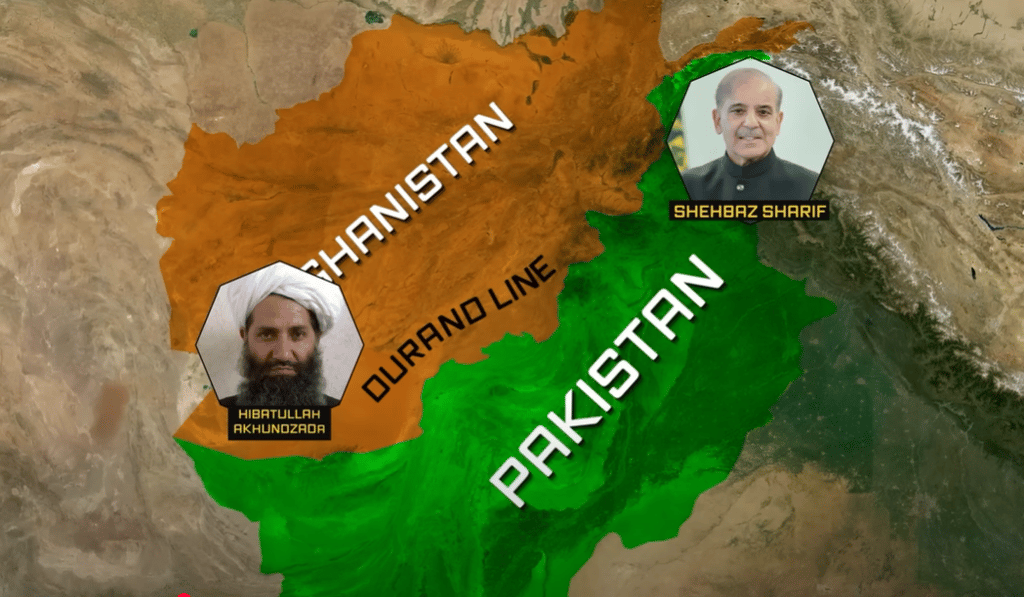Pakistan Airstrikes in Afghanistan: A Deep Dive into Tensions and Fallout
Islamabad, Pakistan – On Tuesday night, the Pakistani military conducted a series of airstrikes in neighboring Afghanistan’s Paktika province. Targeting what were described as hideouts of the Tehreek-e-Taliban Pakistan (TTP), the strikes have added fuel to already strained relations between the two nations. Both countries are accusing each other of undermining regional peace, and the situation remains volatile.
12/25/20243 min read


The Incident: Airstrikes in Paktika 🛑
The airstrikes took place in the Barmal district of Paktika province, close to Pakistan’s South Waziristan tribal district in the Khyber Pakhtunkhwa region. According to sources speaking to Al Jazeera, the strikes targeted militant strongholds, allegedly housing TTP operatives responsible for recent attacks on Pakistani soil.
While no official statements were released by Pakistan's Ministry of Foreign Affairs or the Inter-Services Public Relations (ISPR), multiple sources confirmed the military operation.
Afghan Response: Civilians Targeted?
Afghan officials, led by spokesperson Enayatullah Khowarazami of the Afghan Ministry of Defense, condemned the airstrikes.
“The Pakistani side should understand that such arbitrary measures are not a solution to any problem,” Khowarazami stated on social media platform X. “The Islamic Emirate will not leave this cowardly act unanswered and considers the defense of its territory an inalienable right.”
The Afghan government, ruled by the Taliban, claimed the strikes resulted in several civilian casualties, including women and children.
Context: Why Did Pakistan Conduct These Strikes? 💣
The airstrikes came just hours after Pakistan’s Special Representative for Afghanistan, Mohammad Sadiq, met Afghan Foreign Minister Amir Khan Muttaqi in Kabul. During the meeting, discussions centered on improving bilateral ties and addressing security concerns, particularly Pakistan’s allegations that Afghanistan harbors TTP militants.
Rising TTP Attacks
The TTP has been blamed for a surge in cross-border violence, including an attack last week that killed 16 Pakistani soldiers in South Waziristan. The Pakistani government has accused the Afghan Taliban of providing safe havens to the TTP and failing to address the growing threat posed by the militant group.
At a recent United Nations Security Council briefing, Pakistan’s diplomat Usman Iqbal Jadoon highlighted the issue:
“The TTP, with 6,000 fighters, is the largest listed terrorist organization operating in Afghanistan. With safe havens close to our border, it poses a direct and daily threat to Pakistan’s security.”
Escalation of Violence: A Widening Rift 🌍⚔️
Relations between Pakistan and Afghanistan have been on a downward spiral, worsened by accusations and counter-accusations regarding cross-border militancy.
Key Developments
March Airstrikes: Pakistan has conducted at least four airstrikes targeting TTP hideouts in Afghanistan over the past few years, with one major operation taking place in March 2024.
Bilateral Tensions: The Afghan Taliban has consistently denied harboring militants, while Pakistan asserts that the TTP uses Afghan territory to plan and execute attacks.
Casualties and Humanitarian Concerns
Data from Pakistan’s Interior Ministry shows a sharp rise in violent incidents this year, with over 1,500 attacks reported in the first 10 months of 2024. These incidents resulted in at least 924 deaths, including 570 security personnel and 351 civilians.
The Role of Diplomatic Efforts 🤝
Despite deteriorating ties, Pakistan has made efforts to engage the Afghan leadership. The recent visit by Mohammad Sadiq was seen as an attempt to foster trust and address growing security concerns.
Security analyst Amir Rana explained:
“Sadiq’s visit was likely a trust-building exercise aimed at conveying Pakistan’s concerns over the increasing TTP attacks. However, the airstrikes signal that military action remains a key part of Pakistan’s strategy.”
Expert Analysis: Implications of the Airstrikes 📉
Security experts believe that the airstrikes are both a reaction to recent attacks and part of a larger counterterrorism strategy.
Inconsistent Policies?
Ihsanullah Tipu, co-founder of The Khorasan Diary, criticized Pakistan’s Afghanistan policy, stating:
“Historically, Pakistan’s approach has been personality-driven rather than strategy-driven. Actions such as cross-border airstrikes should be part of a comprehensive and well-planned policy instead of reactive measures.”
Retaliation Risks
The Taliban government has vowed retaliation, but experts warn that the TTP could take revenge on Pakistan instead. Tipu noted:
“The actual reaction may come from the Pakistani Taliban, who have been discussing revenge attacks in their internal communications already.”
Rising Global Concerns 🌍
While Pakistan’s actions may seem unilateral, they align with a global trend of nations carrying out cross-border operations to address militant threats. However, international observers have raised concerns about civilian casualties and the potential for wider conflict.
Amnesty International has called for:
Transparent Investigations: To verify civilian casualties.
Humanitarian Aid: For affected families.
The Bigger Picture: A History of Strained Relations 📜
Pakistan-Afghanistan Relations at a Glance
Durand Line Dispute: The border has been a longstanding issue, with Afghanistan refusing to recognize it as an international boundary.
Terrorist Sanctuaries: Pakistan claims that Afghanistan has failed to eliminate militant groups operating along the border.
Economic Dependencies: Despite tensions, both nations rely on cross-border trade and cooperation.
Conclusion: A Region on the Brink 🕊️
The recent airstrikes underscore the fragility of peace in South Asia, where unresolved conflicts and growing militancy threaten stability. Both Pakistan and Afghanistan must engage in meaningful dialogue to address their grievances and work toward lasting peace.
As the world watches, it remains to be seen whether the two nations can navigate these challenges or whether the cycle of violence will continue to escalate.